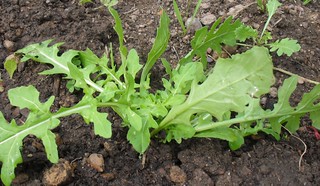Organic gardening is a movement that is rapidly gathering satisfied followers. By using the advice below, you will be able to get started in organic gardening and create a thriving and beautiful garden. Continue reading to uncover a number of effective tips for growing an organic garden you can be proud of.
Allow your children to actively participate in planting your organic garden. Toiling together in the garden brings your family closer together and offers many different opportunities to learn new things and instill green values.
Strawberries are a great plant to grow in any organic garden, especially if you happen to have kids or any strawberry lover in your home. Kids really enjoy plucking snacks directly from the ground, and may have greater enthusiasm for the work if they see the results of their labor right away.
It is easy to quickly prepare your perennial garden ground. Turn over the soil in your garden so it will be soft and easy to plant before spreading wood chips around your garden. Allow for at least 10 days to pass, then plant the perennials that you just purchased.
One way to ensure efficiency while gardening is to keep your tools close by. You can keep them in a good sized bucket, or wear utility pants that have plenty of large pockets. Keep your gloves, pruning shears, a hand spade and your other tools handy to quickly and easily do your garden maintenance.
Add aspirin to your plants to help them fight sickness. Try dissolving around one and one half aspirins into around 2 gallons of water for your plants. All you have to do is spray the plants with this solution and you should see good results. Spraying should be one time every three weeks.
Stay on top of your organic gardening to-do list, and don’t let the work pile up. You may not have a lot of time to exclusively devote to your gardening hobby, but you can make the most of the time you do have. Grab a handful of weeds, throw down some mulch, or toss some water on it anytime you walk by.
Compost Pile
If you are growing your organic plants inside of your home or office, it is vital to make sure that the right amount of light reaches them. Ideally, these plants should be kept in a room that offers natural light from a window or glass door. If you want to grow plants that need a lot of light, consider using artificial lighting.
Apply equal portions of dried plant material and green into your compost pile. Green plant material includes grass clippings, spent flowers, vegetable and fruit waste, weeds and leaves. Dried plant material, however, can include items such as cardboard, sawdust and shredded paper. Charcoal, meat, ashes or other diseased plants should not be included in a compost pile.
If you are planting seeds in containers, a good rule of thumb is that the seed’s depth should be around three times its overall size. Some seeds need sunlight and should not be buried. Two of the common examples are petunias and ageratum. If you’re not sure if your seeds need sunlight, you can find out online or through the seeds’ package.
In order to maximize the efficiency of your gardening, ensure your gardening tools are kept close by you. Carry a large bucket with you or wear pants with a lot of pockets. Keep your trowel, pruning shears and gloves handy so you can do your garden work quickly and easily.
When maintaining your organic garden, try lightly petting your seedlings — either with the palm of your hand or something like a sheet of cardboard — once or twice each day. Even though it sounds strange, it will help plants get bigger.
If slugs are disrupting the balance of your garden, you can diminish their population by using a beer trap. To create a beer trap, dig a hole in your garden that is the depth of a glass jar, leaving the mouth of the jar level with the soil. Fill that with beer just under an inch from the top of your jar. The slugs will be attracted to the beer, and will then become trapped within the jar.
Your seeds, once they begin sprouting, don’t need the same amount of warmth as they did before. As your baby plants grow, you can move them from their heat source. Additionally, remove any plastic films that were on your containers. This will keep out warmth and humidity. Check on your seeds often so you catch them when they are ready.
Treated Wood
Build raised beds with untreated stone, brick or wood. Be sure to use wood that is naturally resistant to rotting and that has not been treated. Some good choices you might consider are locust, cedar, and cypress. In a veggie garden, don’t use treated wood since its chemicals can leech into the food crops and soil. If you have to use treated wood, you should line it with a bit of plastic to create a barrier.
Have plastic bags on hand so that you may cover your muddy gardening shoes. You will be able to go in and out without having to keep taking your shoes on and off.
You just have to be patient if you want to get your organic garden into tip top shape. These tips can be put to use so you can see how great growing a garden can be. It doesn’t matter what you’re trying to grow, the tips you learned can help you be successful.
